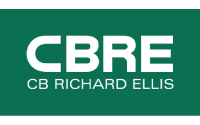No products in the cart.
All Courses
Pursue Your Career Goals with our Specialized Courses
BPI Energy Auditing
The BPI Building Analyst Package includes everything you need to become a BPI certified home energy auditor. Learn more now...
BPI Energy Auditing
BPI Building Science Principles
Advance your home energy auditing career with this online BPI Building Science Principles course. Register online and start learning today...
BPI Energy Auditing
BPI Building Analyst Technician
Sign up for BPI Building Analyst Technician training to become certified in home energy auditing and blower door testing. Register online ...
BPI Energy Auditing
BPI Building Analyst Professional
As a BPI Building Analyst Professional, you'll use energy modeling software to development work scopes and improve home energy efficiency...
BPI Energy Auditing
BPI Infiltration & Duct Leakage
Register now for BPI Infiltration & Duct Leakage Certification training and get certified to offer blower door and duct leakage testing ...
LEED Training
LEED Green Associate Exam Prep: Live or Online
Start your journey toward a LEED credential with Everblue's LEED Green Associate Exam Prep, available in live and online training formats...
Solar Training
New to solar? Start here! This 40-hour, online course introduces the basics of solar energy, electricity, and safety. Get this best seller ...
Solar Training
Expand your skill set by learning how to assemble solar panels and install the balance of components - including inverters, charge ...
Solar Training
PV201B Solar PV Installer Live Training
Learn how to physically install solar panels in this live, in-person training session. This course accompanies our online PV201 course...
RESNET HERS Rater
Complete your RESNET HERS Rater Training online with the top-rated RESNET Accredited Rater Training Provider. Enroll today...











